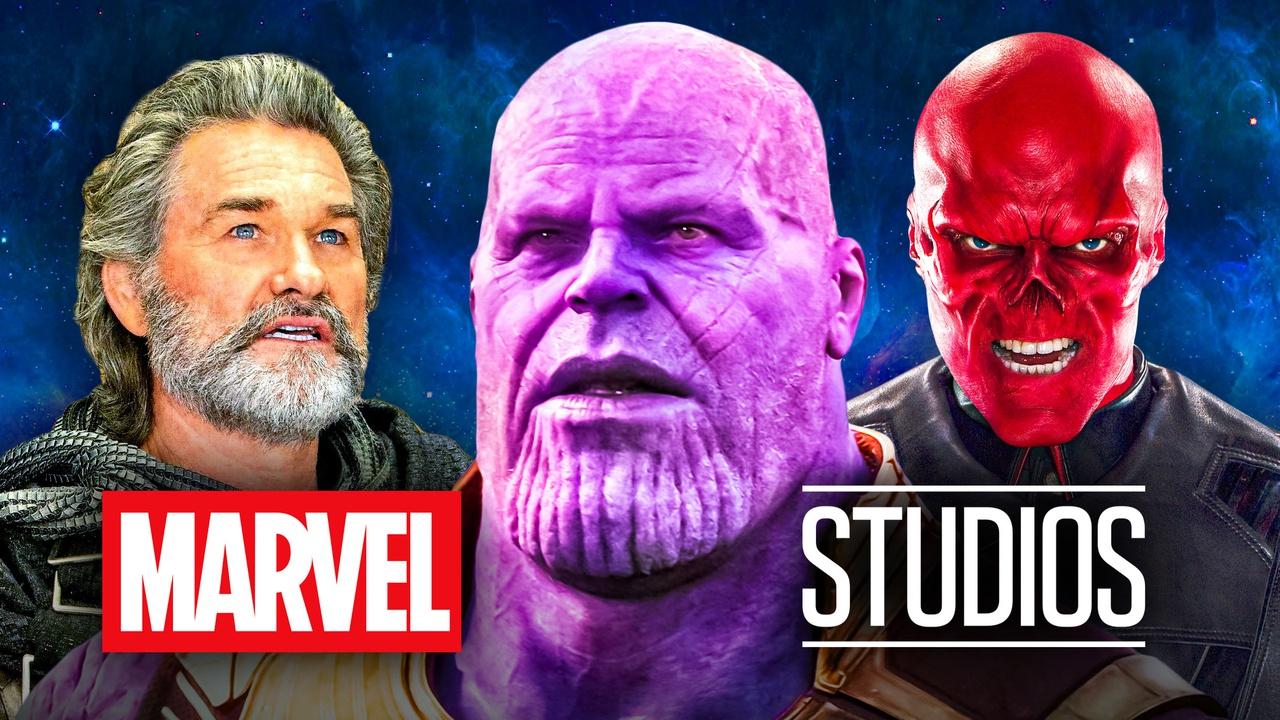
Some Marvel antagonists earn redemption. They learn, they change, and they step up when it matters. Fans have watched that arc play out for figures like Loki, Nebula, and Bucky Barnes, turning former threats into complex heroes.
But not every villain deserves that grace. Some commit acts so calculated, cruel, or vast in scale that no late change of heart can erase the harm. Their choices are not mistakes in the heat of battle but patterns of terror, conquest, genocide, and abuse carried out with intent. The result of these actions is often so dire that redemption no longer seems possible.
Their mindset, rationale, and beliefs are rooted in domination, cruelty, and absolute self-interest. Reintegrating them into society would not only feel false but also diminish the weight of their crimes. These characters serve another purpose: to remind audiences that while some enemies can grow into allies, others embody dangers that must be confronted, resisted, and defeated.
MCU Villains Whose Redemption Arcs Will Likely Never Happen
Thanos

Thanos, the Mad Titan, who has an interesting ancestral lineage you can read about here, stands as one of the MCU's most infamous figures, driven by a warped sense of balance that led him to orchestrate universal genocide. In Avengers: Infinity War and Avengers: Endgame, he collected the Infinity Stones to erase half of all life with a single snap, believing it would solve overpopulation and resource scarcity.
This act not only wiped out trillions but also shattered families and societies, including heroes like Spider-Man and Black Panther, leaving survivors to grapple with irreversible loss.
What makes Thanos truly irredeemable is his unyielding conviction in his philosophy, even after witnessing the devastation firsthand. He raised adopted children like Gamora and Nebula through abuse and pitting them against each other, ultimately sacrificing Gamora for the Soul Stone without remorse.
His invasions of planets, such as the massacre on Zen-Whoberi, further show a pattern of remorseless violence that prioritizes his vision over all life. If Thanos returns to the MCU, any redemption arc will feel hollow and undeserved.
Red Skull

Johann Schmidt, better known as Red Skull, embodies the horrors of unchecked fascism as the head of HYDRA during World War II. In Captain America: The First Avenger, he harnessed the Tesseract's power to fuel weapons of mass destruction, aiming to dominate the world under Nazi ideology.
His experiments and purges targeted anyone deemed inferior, resulting in countless deaths and aligning him with the era's most atrocious real-world evils. Red Skull's irredeemability stems from his deep-rooted hatred and lack of any redeeming qualities, even after his banishment to Vormir in Avengers: Infinity War and Endgame.
Cursed to guard the Soul Stone, he showed no regret for his past, instead guiding others toward sacrifice with cold detachment. His Nazi affiliations and pursuit of godlike power ensure he remains a symbol of pure ideological evil, with no path to forgiveness.
Ego

Ego, the living planet and self-proclaimed Celestial, revealed his monstrous nature in Guardians of the Galaxy Vol. 2 through a quest for universal domination disguised as paternal affection. He sired countless children across galaxies, only to kill them when they failed to inherit his powers, burying their remains on his planetary surface.
This genocide extended to destroying entire worlds by planting seeds that would assimilate all life into his essence. Ego's actions stem from profound narcissism, viewing all other beings as extensions of himself rather than individuals with value.
He manipulated Peter Quill, his own son, into aiding his expansion, which would have eradicated billions. Even his charm and offers of immortality couldn't mask the cold calculation behind his mass murders.
High Evolutionary

Herbert Wyndham, the High Evolutionary, pursued perfection through grotesque experimentation in Guardians of the Galaxy Vol. 3, creating hybrid species while discarding failures with brutal indifference. He tortured animals and sentient beings, like Rocket Raccoon, implanting cybernetics and conducting painful procedures to evolve them into his ideal society.
His creation of Counter-Earth involved enslaving and mutating populations, only to destroy the planet when it didn't meet his standards. This villain's god-complex, treating life as disposable material for his twisted science, makes him insusceptible to reform.
He showed no empathy for the suffering he inflicted, even mocking his creations' pain. The High Evolutionary almost got what he deserved at the end of the film, but this happened instead.
Dormammu

Dormammu, the interdimensional entity from Doctor Strange, sought to engulf Earth in his Dark Dimension, where time and death hold no sway, but eternal torment reigns. He manipulated followers like Kaecilius to shatter dimensional barriers, aiming to merge multiple realities and subject all life to his timeless rule.
His immense power allowed him to kill Doctor Strange repeatedly in a time loop, demonstrating a sadistic hunger for conquest.
Dormammu exists as a force of pure consumption, lacking any humanizing traits or capacity for change. His bargain with Strange to spare Earth was born of annoyance rather than growth, and his eternal hunger for expansion ensures he remains a constant cosmic threat.
Malekith

Malekith the Accursed, leader of the Dark Elves in Thor: The Dark World, aimed to unleash the Aether and plunge the universe into eternal darkness during the Convergence. He sacrificed his own people in a war against Asgard, massacring Asgardians and invading realms to reclaim the Reality Stone. His actions led to the death of Queen Frigga and threatened all Nine Realms with oblivion.
Malekith, once nearly portrayed by a major MCU star, draws his evil from a fanatical devotion to restoring a universe without light, viewing light-based life as an abomination worthy of extinction.
This villain has zero emotional attachments or internal conflict; he operates as a remorseless destroyer.
Kilgrave

Kevin Thompson, alias Kilgrave, wielded mind control in Netflix's Jessica Jones to enslave and abuse others, forcing victims into acts against their will. He compelled people to commit murders, suicides, and assaults, including assaulting Jessica and making her kill Reva Connors.
His powers extended to everyday cruelties, like stealing lives for his whims and torturing his own parents.
Kilgrave has a sense of entitlement and a lack of conscience, seeing his abilities as justification for treating humans as puppets. Even attempts at "love" were coercive and violent, with no genuine guilt for the trauma he inflicted.
Hela

Hela, the Goddess of Death in Thor: Ragnarok, conquered realms alongside Odin before being imprisoned for her insatiable bloodlust. Upon escape, she slaughtered Asgard's warriors, revived undead armies, and triggered Ragnarok to rebuild an empire of subjugation.
Her destruction of Mjolnir and attempted murder of Thor and Loki highlighted her familial betrayal. Hela embraced death and conquest, viewing mercy as weakness and life as fodder for her power.
Crossbones

Brock Rumlow, known as Crossbones, evolved from a HYDRA operative in Captain America: The Winter Soldier to a vengeful terrorist in Civil War.
He orchestrated bombings and attempted to steal biological weapons, killing civilians in Lagos and targeting the Avengers. His explosive vest nearly claimed the life of Captain America.
Crossbones is pure evil, gleefully embracing chaos and revenge. He is scarred by past defeats but unrepentant.
Cassandra Nova

Cassandra Nova, the MCU's first Omega-Level mutant introduced in Deadpool & Wolverine, sought to annihilate the multiverse using the Time Ripper, driven by hatred for her twin, Charles Xavier. She killed variants of heroes in the Void, including multiple Xaviers, and manipulated timelines for personal vengeance. Her psychic powers allowed invasive control, stripping autonomy from victims.
Nova is embedded with parasitic origins and genocidal ambitions, viewing existence as a canvas for destruction.
Dreykov

General Dreykov ran the Red Room in Black Widow, kidnapping young girls worldwide to brainwash and transform them into assassins. He chemically subjugated them, erasing free will and forcing missions that claimed innocent lives.
His "daughter," Antonia, became Taskmaster through experimental control after a failed assassination attempt. Dreykov's irredeemability lies in his systemic exploitation, treating women as tools and deriving power from their suffering.
Green Goblin

Norman Osborn's Green Goblin persona wreaked havoc in Spider-Man: No Way Home, murdering Aunt May and influencing chaos in the multiverse. Transported to the MCU, he bombed bridges, killed civilians, and tormented Peter Parker by exploiting his morality. His split personality amplified sadistic glee in destruction.
The Goblin's irredeemability comes from his delight in psychological warfare and murder, with the serum enhancing his worst impulses without eradicating his cunning.
Geraldo Amartey is a writer at The Direct. He joined the team in 2025, bringing with him four years of experience covering entertainment news, pop culture, and fan-favorite franchises for sites like YEN, Briefly and Tuko.











